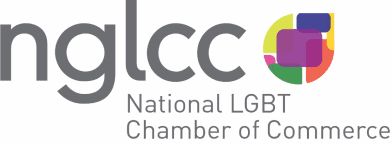NGLCC ANTITRUST POLICY
NGLCC stakeholders perform many useful and legitimate functions, including promoting industry products, joint activity in connection with legislation, regulations, and other government activities, product safety, and vocational training. However, the very fact that NGLCC meetings may bring together industry competitors making them vulnerable to antitrust scrutiny and can expose participants to antitrust claims.
Section 1 of the Sherman Act, a key US antitrust law, prohibits any agreement between two or more companies that results in an unreasonable restraint of trade. There is no safe harbor under the antitrust laws for trade association activities. Dealings among competitors that violate the federal antitrust laws still violate the law if done through trade associations. Violating the Sherman Act is a felony that can result in imprisonment for up to 10 years, in addition to civil penalties and reputational damage.
Under the antitrust laws, NGLCC employees and stakeholders are not allowed to discuss certain topics with competitors including during any meeting’s scheduled sessions or side discussions. NGLCC employees and stakeholders should consider the following warnings, which apply to all contacts with NGLCC attendees, when attending meetings to avoid running afoul of the antitrust laws.
Therefore, attendees should not discuss the company’s non-public, competitively sensitive information with competitors, including:
- Current or future pricing and discounts.
- Bid amounts and terms, including decisions whether to bid or not bid.
- Output or capacity levels.
- Limits on sales levels or sales of certain products to certain regions.
- Customers.
- Key contract or sale terms.
- Salaries and wages, or limitations on hiring a competitor’s employees.
- Strategic plans.
- Business expansion or contraction plans.
- Planned geographic growth.
In addition, attendees should not:
- Agree to, or discuss, refusing to do business with any competitor, customer, or company in the supply chain.
- Agree to, or discuss, any limitations on your company’s activities or independent decision- making, such as changing the way you adjust pricing or make output decisions.
- Exchange non-public, competitively sensitive information with competitors.
Any type of joint effort with NGLCC stakeholders should be first vetted by counsel, including data exchanges, joint ventures, or lobbying efforts. NGLCC also wants to avoid creating the appearance of illegal collusion, or that inappropriate communications or information exchanges are taking place. Any meeting with a competitor could later be interpreted as evidence of an illegal information exchange or of cartel activity. As much as possible, attendees should avoid side- meetings and conversations with competitors during NGLCC meetings.
Stopping the Conversation
Cartel agreements are agreements between competitors to fix prices, alter output, allocate markets or customers, or rig bids. This type of behavior is per se illegal, meaning there is no justification. It is automatically illegal. If these topics come up during the meeting:
- Interrupt the meeting and suggest pausing the conversation until it can be vetted by an NGLCC Executive.
- If, after vocally objecting, the conversation continues, attendee should state they are leaving the meeting and ask that the council discussion notes reflect your concern and departure.
- Promptly leave, and attendee should contact an NGLCC Executive.
It is possible that, if discussion steers towards a sensitive topic, it will be less obvious or overt than the per se violations discussed above. For this or other reasons, it may not be feasible to immediately interrupt or leave the discussion. If that happens:
- Avoid participating in the discussion.
- If an attendee feels comfortable, suggest that the discussion be delayed until vetted by
- counsel.
- If the discussion continues, leave as soon as possible.
- Attendees should contact an NGLCC Executive.
If an inappropriate discussion arises during a side conversation in which an attendee may be involved, the attendee should insist that it end. If it continues, the attendee should announce their intent to leave because the attendee feels it violates the law. Leave, and the attendee should contact an NGLCC Executive.
Permissible Conduct and Information Exchanges
Lawmakers and regulators recognize that trade associations and standard-setting organizations often promote competitively benign or procompetitive activities, such as:
- Collecting publicly available information about the industry, organizing it, and disseminating it to industry participants.
- Setting industry standards that increase product interoperability, compatibility, or safety.
- Creating a public website that informs customers about a complicated industry.
- Lobbying efforts.
- Coordinating collection and exchange of historical, aggregated industry data.
- Sharing non-strategic technical or scientific data that results in consumer benefits.
To that end, not all information exchanges with competitors are prohibited. There are safe harbors to guide information exchanges with procompetitive or benign purposes. Generally, information is not considered competitively sensitive if it is:
- Three or more months old.
- Collected and aggregated by a third party.
- Data aggregated from five or more firms, where no firm counts for more than 25% of the aggregated value, and it is impossible to identify any individual firm.
- Highly technical and nonstrategic.
Procompetitive or benign information exchanges that reduce fraud or confer consumer benefits are acceptable. Nonetheless, all information exchanges with meeting attendees or stakeholders should be cleared in advance with an NGLCC Executive.
If an attendee receives any documents containing non-public, competitor, or industry information at a NGLCC meeting (for example, if a customer gives an attendee a document that includes information about a competitor), make a notation on the document listing the source, date, and context in which the attendee received it, so that it is clear to a reader that the document is not evidence of an anticompetitive information exchange. Please contact an NGLCC Executive if any attendee thinks the document could be viewed as evidence of prohibited activity.
After the Meeting
If, after the meeting an attendee becomes concerned about a topic that was discussed, immediately contact an NGLCC Executive. Attendees should not discuss the topic further with other participants.
NGLCC Executive Team can be reached at operations@nglcc.org.
